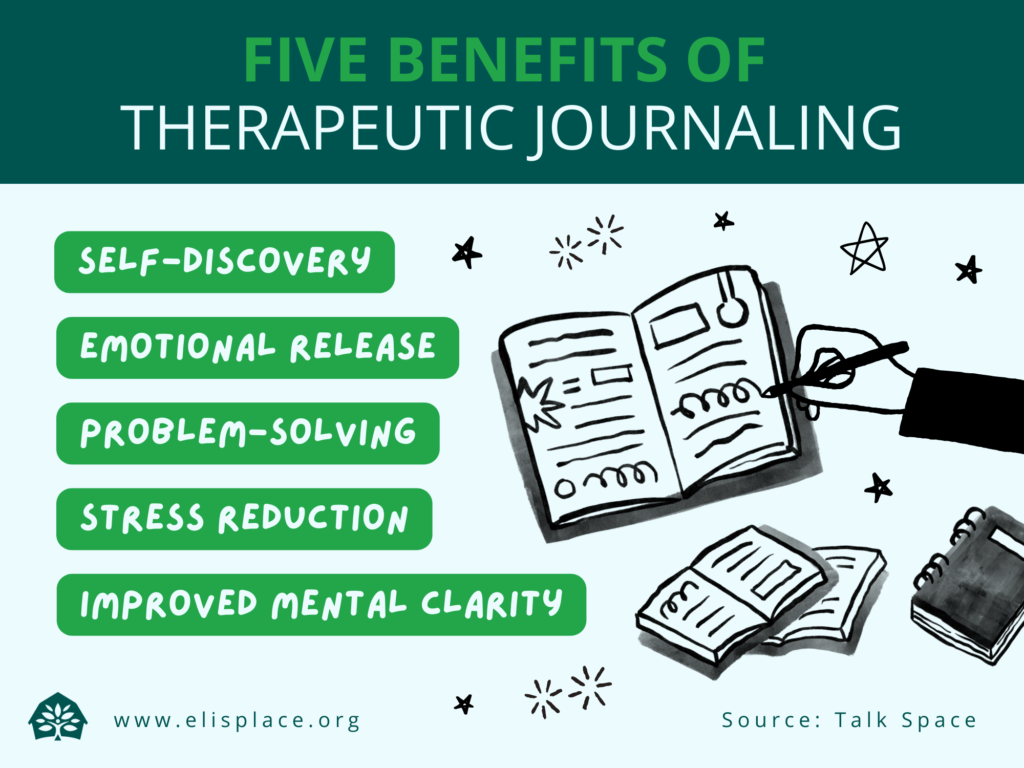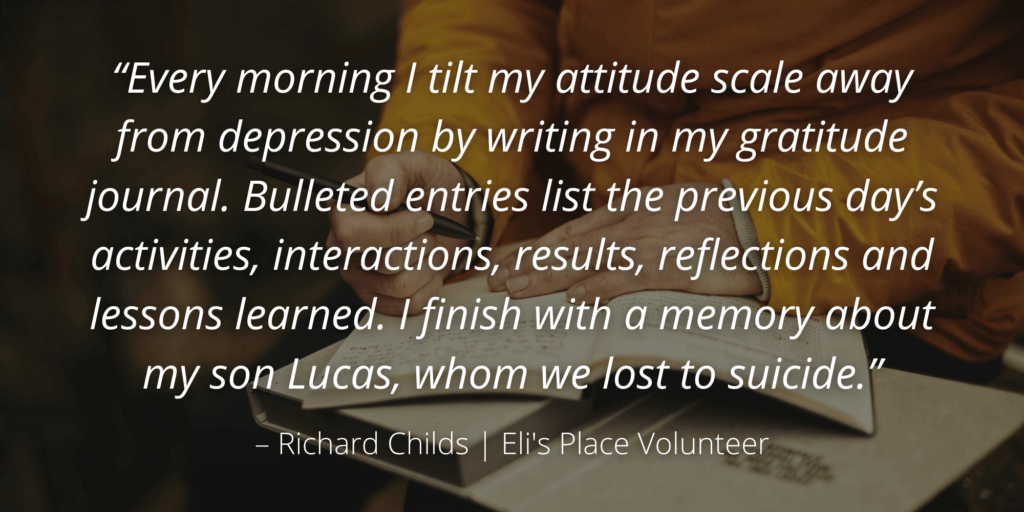Therapeutic journaling, a practice rooted in the expressive arts, has gained increasing recognition for its positive impact on mental health and emotional well-being. Scientific research and anecdotal evidence have shown that journaling can be a powerful tool to navigate through challenges, process emotions, and promote healing.
Here, we’ll explore the science behind journaling for mental health, various techniques and benefits, as well as some guidelines and prompts to help you develop a meaningful journaling practice.

What is Journaling?
Journaling is the practice of putting thoughts, feelings, and experiences into writing. There are no strict rules for journaling, making it an accessible and flexible tool for everyone. However, some general guidelines can help make journaling a more effective and satisfying experience: find a comfortable space, set aside a dedicated time to write, be honest and non-judgmental about your writing, and finally, let your thoughts and feelings flow freely without worrying about grammar or structure.

The Science Behind Journaling for Mental Health
Numerous studies, such as the one conducted by Ullrich and Lutgendorf (2021), published in the National Library of Medicine, have highlighted the therapeutic benefits of journaling for mental health.
Briefly, they outline that the act of writing down thoughts and emotions can help individuals gain clarity, reduce stress, and improve their overall psychological well-being. The brain-to-paper connection has been found to engage different cognitive processes, allowing individuals to process and understand their emotions better.

Techniques for Therapeutic Journaling
Journaling can take various forms, each catering to different needs and preferences. For instance, some popular journaling techniques include:
- Reflective Journaling: This involves writing about daily experiences, emotions, and thoughts, allowing introspection and understanding oneself better.
- Gratitude Journaling: Focusing on the positive aspects of life, this technique involves listing things you are grateful for, promoting a more positive outlook.
- Stream of Consciousness: Letting thoughts flow naturally without any specific structure or purpose can lead to insights and emotional release.
- Creative Expression: Incorporating doodles, drawings, or poems in your journal can help release emotions in a more creative and liberating manner.

Journaling for Serious Mental Illness
Journaling can be beneficial for individuals dealing with various mental health challenges, such as anxiety, depression, and post-traumatic stress disorder (PTSD).
It offers a safe space to process emotions, identify triggers, and track progress in therapy. Especially for those recovering from trauma or brain injury, journaling can play a vital role in rehabilitation, fostering brain function, and promoting emotional healing.

The Benefits of Journaling
The benefits of therapeutic journaling are far-reaching:

- Self-Discovery: By exploring thoughts and feelings on paper, individuals gain deeper insights into their inner selves and patterns of behaviour.
- Emotional Release: Journaling provides an outlet to release pent-up emotions, reducing stress and promoting emotional regulation.
- Problem-Solving: Journaling can help organize thoughts, analyze problems, and brainstorm solutions.
- Stress Reduction: The act of journaling activates the relaxation response, reducing stress hormone levels.
- Improved Mental Clarity: Writing helps declutter the mind and reduce rumination, which can lead to improved mental focus.

How To Start Journaling
Starting a journaling practice can be daunting, but with these tips, you can ease into the process:
- Choose a Journal and Writing Instrument: Select a journal that appeals to you and a pen or pencil that feels comfortable to write with.
- Set a Routine: Set a specific time each day or week for journaling to establish consistency.
- Write Freely: Let go of inhibitions and write without fear of judgment. Remember, there are no right or wrong ways to journal.
- Be Patient and Kind: Journaling is a process, and it may take time to experience its full benefits. So be patient with yourself.

Prompts for Mental Health Journaling
To kickstart your journaling practice, consider these prompts:
- List five things you are grateful for today.
- Describe a challenge you faced and how you coped with it.
- Write a letter to your past self, offering words of encouragement and support.
- Reflect on a recent accomplishment that made you proud.
- Explore a recurring thought or emotion and try to understand its root cause.

The Pros & Cons of Therapeutic Journaling
While therapeutic journaling can be immensely beneficial, it is essential to acknowledge its limitations.
Journaling is not a substitute for professional mental health treatment, especially for severe mental illnesses. It can complement therapy – but should not replace it. Additionally, some people may find journaling triggering or overwhelming, and that’s okay. Everyone’s journey is unique, and it’s crucial to listen to your needs and seek support when necessary.

A Personal Take
In addition to his daily journaling, Eli’s Place volunteer Richard Childs has contributed a moving piece for our blog, recounting his time writing to deal with grieving the loss of his son, Lucas, to suicide. While using the creative expression technique, Richard’s preferred form is haiku which integrates poetry therapy with nature therapy. Read his post here.


Remember,
Journaling…
is a personal practice, so allow it to be a reflection of your unique experiences and emotions. Overall allow your journaling to be a judgment-free zone where you can be your most authentic self. While embracing the freedom to express your thoughts and feelings openly, know that this personal practice is an empowering tool for self-discovery and emotional growth. Offering the time and space to develop a journaling practice may be one of the tools available at Eli’s Place.
Eli’s Place will be a rural, residential treatment program for young adults with serious mental illness. To learn more about our mission and our proven-effective model click here.




